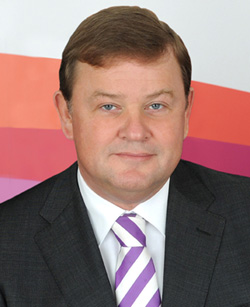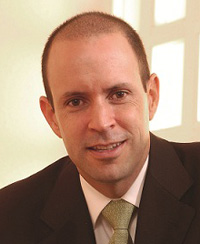- Home
- News
- Features
- Topics
- Labor
- Management
- Opinions/Blogs
- Tools & Resources
World Economic Forum: Business Leaders Call For Social Goals In Corporate Decisions
Business must include humanitarian social goals in its mission and incentives, or face eventual collapse in the next century.
This was the conclusion of a panel of business and civil society leaders that took place Jan. 26, 2013, at the 43rd World Economic Forum Annual Meeting in Davos, Switzerland.
“Businesses have more power and money than ever before. They can destroy large parts of the planet. If your impact is high, your responsibility is high,” said Feike Sijbesma, chief executive officer and chairman of the managing board, Royal DSM, Netherlands.
Sijbesma said that governments cannot solve world problems such as climate change, resource scarcity and food shortages on their own, so companies must step in.
“Any company that focuses only on shareholder value will eventually self-destruct,” said William W. George, professor of management practice, Harvard Business School.
George listed GM, Kodak and Sears as examples of companies that entered crises because they paid attention only to short-term profit.
He said that for a company to flourish, “it must create a shared sense of purpose and values, then align incentives to reflect the needs of all the people you are serving.”
Many companies had lost their way, especially in the run-up to the 2008 financial crisis, George said.
“We got distorted. We started bowing to Wall Street.” George said that if companies do their job, which is to create value for society, their shareholders will be rewarded, too.
Business And Social Values Compatible
Carlos Danel, co-chief executive officer, Compartamos, Mexico, who has created a profitable publicly traded bank by focusing only on microfinance, said his firm set metrics and incentives to ensure employees focus on social value as well as economic value.
One such incentive is that loan officers are compensated based on the number of clients served, not on the volume of funds loaned. The bank’s average loan size is US$400.
“We need to be profitable to attract money from the capital markets, but if that is all we do, we have not fulfilled our purpose.”
Danel admitted that there can be tension between social and financial goals. However, “there is common ground” he said.
Many companies are already making the shift to include societal goals.
Mary Robinson, president, Mary Robinson Foundation-Climate Justice, Ireland, cited widespread corporate approval of the UN Guiding Principles for Business and Human Rights, which include the obligation for businesses “not just to do no harm, but to perform due diligence and look at their supply chain.”
Robinson said this change in business must accelerate quickly, since “we probably only have seven or eight years left to avoid a climate cliff.”
The panelists agreed that governments must create incentives for businesses to adopt social goals.
“Governments can’t solve problems any more, but they can help change the system,” Sijbesma said.
There was a strong consensus that fiscal incentives would spur businesses to change their focus, with suggestions including a capital gains tax based on the length of time an investor owns shares, reduced taxation on labor and increased taxation on resources, and tax benefits for companies that create value for all stakeholders, not just shareholders.
“The market cannot work, especially in the long term, if there is no moral foundation,” said Jim Wallis, president and chief executive officer, Sojourners, USA.
Wallis said that even Adam Smith would have agreed that governments must step in “when the invisible hand lets go of the common good.”
Wallis said that many people no longer trust business and government leaders, and that the World Economic Forum, with its representatives from different sectors, has the potential to restore trust across different parts of society and to create a new social covenant.
“But the world is looking for values decisions, not just values discussions.”
See also
The Global Economy in 2013: “Fragile and Timid Recovery”
List your business in the premium web directory for free This website is listed under Human Resources Directory






